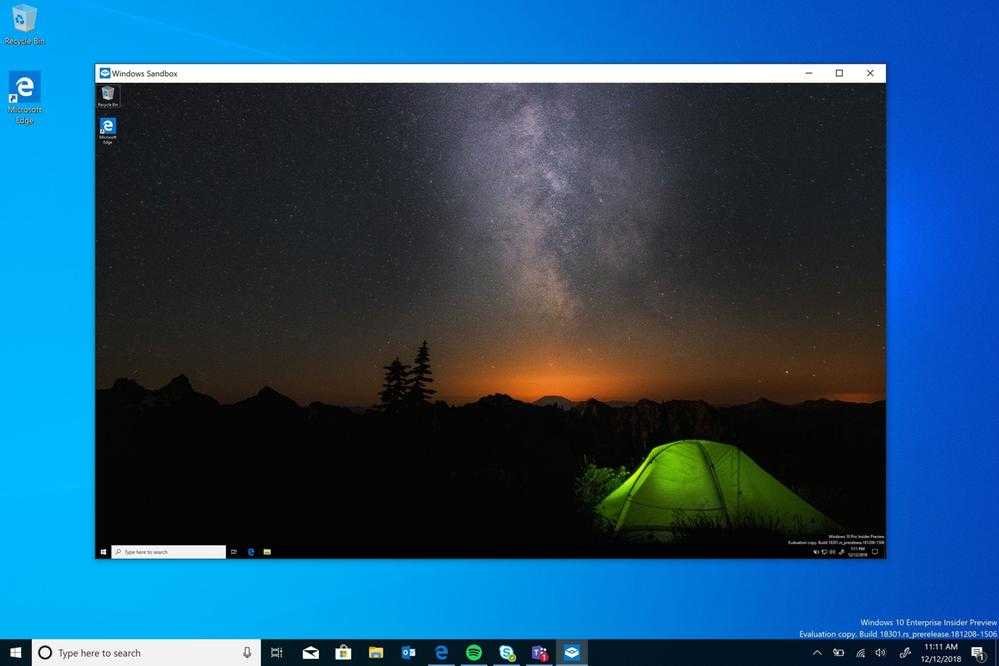Windows Sandbox: Microsoft has officially announced a feature that is expected to come with Windows 10 19H1 early next year. The company refers to it as "Windows Sandbox" and will be part of the versions of Windows 10 Pro and Enterprise.

The new feature will create an “isolated temporary environment” where users can run suspiciously software, as company executives said in a blog post on December 18.
Earlier this year, there were rumors that Microsoft was preparing a new security feature in Windows 10, which it then called “InPrivate desktop".
InPrivate Desktop was reported on Microsoft's Insider Feedback Hub during a bug-bash in August. The code name for InPrivate Desktop (then) was “Madrid” (Madrid).
In today's announcement on the Windows Sandbox blog, Microsoft officials said the feature will become available to Windows 10 Pro or Enterprise users running Build 18301 or later. (Microsoft has yet to release Build 18301 of Windows 10 to Insider testers, but it could do so later this weekteam.)
Later, however, the publication reported that the feature could work with Windows 10 Pro or Enterprise on Build 18292. This feature requires an AMD64 platform and BIOS-enabled virtualization capabilities.
Windows Sandbox is a lightweight virtual machine based on technologies used by Windows Containers, according to the publication. Windows Sandbox uses a new technology that Microsoft calls the "built-in scheduler" or "integrated scheduler," which allows the host to decide when to run the sandbox.
Read more about the upcoming security feature on official announcement.
______________
- Windows 10 for free; How does Microsoft earn more?
- FlashBoot: Create a current copy of Windows to USB Flash Drives
- Microsoft released Windows 10 19H1 Build 18298





